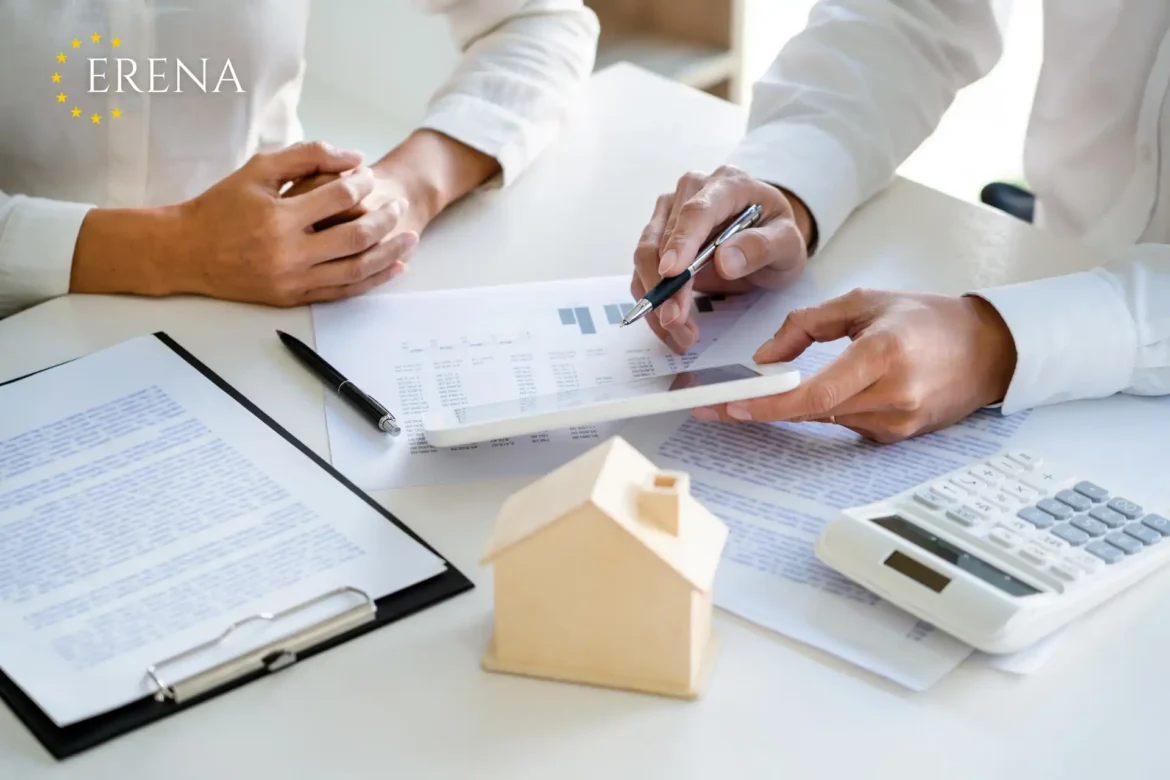Purchasing real estate in Germany is not only a secure way to preserve capital but also an opportunity to optimize tax burdens. Property owners can take advantage of various tax deductions and benefits, significantly reducing their tax liabilities. This article provides a detailed overview of the key tax advantages of purchasing real estate in Germany, including depreciation, tax deductions, capital gains tax exemptions, and inheritance tax relief.
1. Property Depreciation and Tax Deductions
One of the main advantages of investing in real estate in Germany is the ability to write off part of its value through depreciation. This reduces taxable income, making it particularly beneficial for investors renting out their properties.
Standard Depreciation for Residential Real Estate (§ 7 Abs. 4 EStG)
• If the property was built before 1925, the owner can deduct 2.5% of the property’s value per year.
• If the property was built after 1925, a 2% annual depreciation rate applies.
• Over a period of 40–50 years, the property’s value can be fully deducted, significantly reducing the tax burden.
Depreciation for Commercial Real Estate
Commercial properties depreciate faster than residential ones. The standard depreciation rate is typically 3–4% per year, making commercial investments more attractive from a tax perspective.
Conclusion:
Depreciation allows investors to reduce their taxable income each year, lowering their tax payments.
2. Tax Incentives for Renovating Historical Buildings
If a property is classified as a historical monument (Denkmalschutz), the owner can benefit from substantial tax incentives for restoration work.
• For rental properties (investment properties) – § 7i EStG:
o 9% of renovation costs can be deducted annually for the first 8 years.
o 7% per year for the following 4 years.
o This allows 100% of renovation expenses to be written off over 12 years.
• For owner-occupied properties – § 10f EStG:
o 9% of renovation costs can be deducted annually for 10 years.
o In total, 90% of restoration expenses are tax-deductible.
Conclusion:
Investing in historical buildings is an excellent way to reduce tax payments, especially for rental investors.
3. Mortgage Interest Tax Deduction
If a property is financed through a mortgage and used as a rental investment, mortgage interest payments are fully deductible from taxable income.
• All interest payments on the loan are fully tax-deductible (§ 9 Abs. 1 Nr. 1 EStG), significantly reducing income tax liabilities.
• This is particularly advantageous for investors as it offsets financing costs.
Conclusion:
Using leverage (borrowed capital) is not only convenient but also beneficial for tax optimization.
4. Deduction of Maintenance and Operating Costs
Property owners renting out their real estate can deduct various costs associated with property maintenance, including:
• Utility bills (if not passed on to tenants).
• Maintenance and repair costs.
• Property insurance premiums.
• Property management fees.
• Property tax (Grundsteuer).
Conclusion:
These deductible expenses make real estate rental more profitable by reducing taxable income.
5. Exemption from Capital Gains Tax
Germany has a rule that if a property is held for more than 10 years, its sale is exempt from capital gains tax (Spekulationssteuer).
• If the property is sold within the first 10 years, capital gains tax can be as high as 45%, depending on the owner’s income tax bracket.
• If the property was used as the owner’s primary residence for at least two years before the sale, the capital gains tax is also waived.
Conclusion:
This exemption makes real estate in Germany a highly attractive long-term investment.
6. Inheritance and Gift Tax Benefits
Germany imposes inheritance and gift taxes on real estate transfers, but there are key exemptions:
• If the heir lives in the property for at least 10 years, the inheritance tax may be fully waived.
• Historical buildings may qualify for additional tax relief if maintained according to preservation requirements.
Conclusion:
These provisions make transferring property within a family less financially burdensome.
7. Tax Benefits for Real Estate Investors and Landlords
If a property is used as a rental investment, investors can leverage additional tax benefits:
• Carrying forward rental losses (Verlustvortrag) – If rental expenses exceed rental income, losses can be applied to future tax years.
• Using commercial structures (e.g., GmbH) to minimize tax liabilities.
• VAT (Mehrwertsteuer) optimization strategies for commercial real estate transactions.
Conclusion:
Renting out property in Germany not only provides stable income but also offers flexible tax optimization opportunities.
Conclusion
Buying real estate in Germany is not just a secure investment, but also a means of efficient tax planning. Property owners can benefit from:
✔ Depreciation to reduce taxable income.
✔ Restoration incentives for historical buildings, allowing up to 100% deduction of renovation costs.
✔ Mortgage interest deductions to lower tax burdens.
✔ Tax-deductible operating and maintenance expenses for rental properties.
✔ Capital gains tax exemption after 10 years.
✔ Inheritance and gift tax relief under specific conditions.
Thanks to these tax advantages, real estate in Germany remains an attractive asset for investors, enabling them to not only preserve capital but also significantly optimize their tax liabilities.
Tax Benefits of Buying Real Estate in Germany
1.2K

